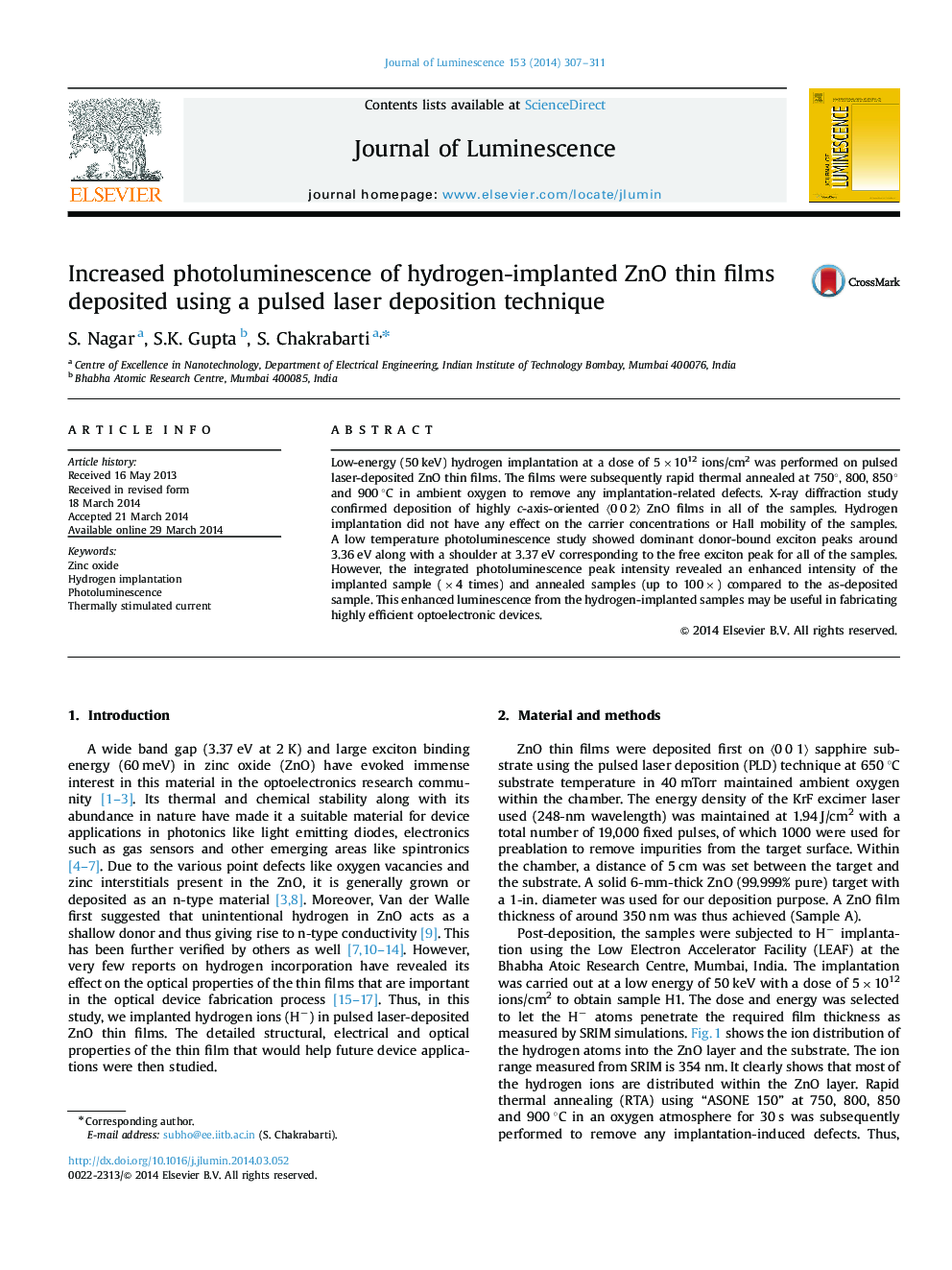| Article ID | Journal | Published Year | Pages | File Type |
|---|---|---|---|---|
| 5399702 | Journal of Luminescence | 2014 | 5 Pages |
Abstract
Low-energy (50 keV) hydrogen implantation at a dose of 5Ã1012 ions/cm2 was performed on pulsed laser-deposited ZnO thin films. The films were subsequently rapid thermal annealed at 750°, 800, 850° and 900 °C in ambient oxygen to remove any implantation-related defects. X-ray diffraction study confirmed deposition of highly c-axis-oriented ã0 0 2ã ZnO films in all of the samples. Hydrogen implantation did not have any effect on the carrier concentrations or Hall mobility of the samples. A low temperature photoluminescence study showed dominant donor-bound exciton peaks around 3.36 eV along with a shoulder at 3.37 eV corresponding to the free exciton peak for all of the samples. However, the integrated photoluminescence peak intensity revealed an enhanced intensity of the implanted sample (Ã4 times) and annealed samples (up to 100Ã) compared to the as-deposited sample. This enhanced luminescence from the hydrogen-implanted samples may be useful in fabricating highly efficient optoelectronic devices.
Related Topics
Physical Sciences and Engineering
Chemistry
Physical and Theoretical Chemistry
Authors
S. Nagar, S.K. Gupta, S. Chakrabarti,
